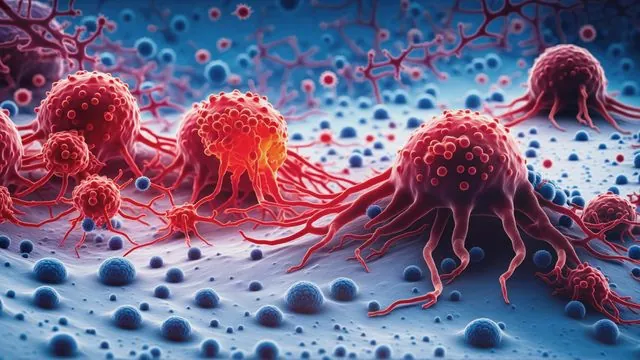
How Gut Microbes Influence Your Colon Cancer Risk: New Discoveries Unveiled!
2024-12-16
Author: Wei Ling
Revolutionary Findings on Bile Acids and Colon Cancer
The recent study spotlights the remarkable relationship between gut microbes and the human body. The team’s findings suggest a profound connection through a crucial protein called the farnesoid X receptor (FXR), which plays a vital role in maintaining gut health. While FXR is known to regulate bile acid production in the liver, it also responds differentially to various bile acids modified by gut microbes.
Dr. Ting Fu, one of the lead researchers, elucidated, “Some microbial bile acids bolster FXR’s function, while others serve to undermine it.” In prior research, Fu and her team identified FXR as a promising target for drug development aimed at treating inflammatory bowel disease—notably a condition that elevates the risk of colon cancer.
A Double-Edged Sword
The new research team, including key figures like pharmacy professors Jiaoyang Jiang and Dustin Deming, uncovered two microbial bile acids with opposing effects on FXR during tumor development in the intestines. One of these bile acids enhances FXR's protective functions, effectively slowing the growth of cancer, while the other compromises FXR’s ability, thereby unleashing tumor proliferation.
These compelling findings were validated through experiments with mouse models and organoids—miniature lab-grown organs derived from human colorectal cancer patients. This marks the first time that a connection has been established between these specific bile acids and their roles in the development and prevention of colorectal cancer.
Implications for Future Cancer Treatments
Published in the Proceedings of the National Academy of Sciences, this study not only sheds light on the complex interactions between gut microbiota and cancer but also paves the way for innovative cancer detection methods and targeted treatments. “Understanding these complex mechanisms is a significant step toward improving early detection and developing targeted therapies for colorectal cancer,” stated Xingchen Dong, the lead author of the study.
The research showcases the incredible biodiversity of the gut microbiome and its profound effects on human health. Dr. Fu emphasized, “It’s fascinating how microbial modifications of bile acids can notably impact our bodies. We host more microbes than human cells, making their role in health and disease critical to understand.”
Given the staggering prevalence of colorectal cancer, where millions of individuals are diagnosed annually, these discoveries are not just academic; they herald the potential for life-saving interventions. As we unlock the secrets of the gut microbiome and its relationship with bile acids, we stand on the brink of a new era in colorectal cancer prevention and treatment.
To keep abreast of these breakthroughs and how they might affect your health or that of your loved ones, stay tuned for updates as research in this field rapidly evolves!




 Brasil (PT)
Brasil (PT)
 Canada (EN)
Canada (EN)
 Chile (ES)
Chile (ES)
 España (ES)
España (ES)
 France (FR)
France (FR)
 Hong Kong (EN)
Hong Kong (EN)
 Italia (IT)
Italia (IT)
 日本 (JA)
日本 (JA)
 Magyarország (HU)
Magyarország (HU)
 Norge (NO)
Norge (NO)
 Polska (PL)
Polska (PL)
 Schweiz (DE)
Schweiz (DE)
 Singapore (EN)
Singapore (EN)
 Sverige (SV)
Sverige (SV)
 Suomi (FI)
Suomi (FI)
 Türkiye (TR)
Türkiye (TR)